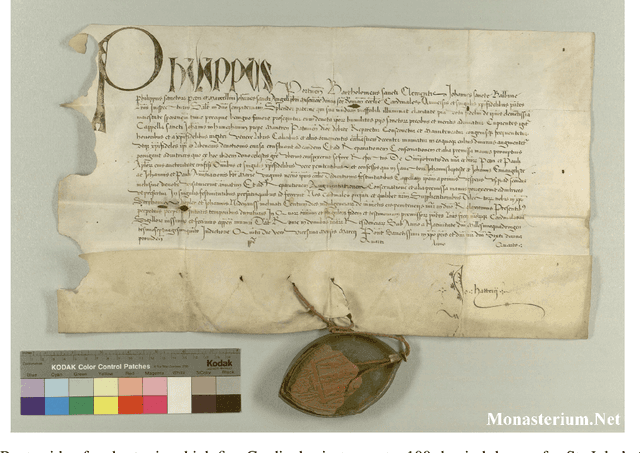Florian Atzenhofer-Baumgartner
Challenges in Implementing a Recommender System for Historical Research in the Humanities
Oct 28, 2024
Abstract:This extended abstract describes the challenges in implementing recommender systems for digital archives in the humanities, focusing on Monasterium.net, a platform for historical legal documents. We discuss three key aspects: (i) the unique characteristics of so-called charters as items for recommendation, (ii) the complex multi-stakeholder environment, and (iii) the distinct information-seeking behavior of scholars in the humanities. By examining these factors, we aim to contribute to the development of more effective and tailored recommender systems for (digital) humanities research.
Value Identification in Multistakeholder Recommender Systems for Humanities and Historical Research: The Case of the Digital Archive Monasterium.net
Sep 26, 2024Abstract:Recommender systems remain underutilized in humanities and historical research, despite their potential to enhance the discovery of cultural records. This paper offers an initial value identification of the multiple stakeholders that might be impacted by recommendations in Monasterium.net, a digital archive for historical legal documents. Specifically, we discuss the diverse values and objectives of its stakeholders, such as editors, aggregators, platform owners, researchers, publishers, and funding agencies. These in-depth insights into the potentially conflicting values of stakeholder groups allow designing and adapting recommender systems to enhance their usefulness for humanities and historical research. Additionally, our findings will support deeper engagement with additional stakeholders to refine value models and evaluation metrics for recommender systems in the given domains. Our conclusions are embedded in and applicable to other digital archives and a broader cultural heritage context.
Is text normalization relevant for classifying medieval charters?
Aug 29, 2024Abstract:This study examines the impact of historical text normalization on the classification of medieval charters, specifically focusing on document dating and locating. Using a data set of Middle High German charters from a digital archive, we evaluate various classifiers, including traditional and transformer-based models, with and without normalization. Our results indicate that the given normalization minimally improves locating tasks but reduces accuracy for dating, implying that original texts contain crucial features that normalization may obscure. We find that support vector machines and gradient boosting outperform other models, questioning the efficiency of transformers for this use case. Results suggest a selective approach to historical text normalization, emphasizing the significance of preserving some textual characteristics that are critical for classification tasks in document analysis.
 Add to Chrome
Add to Chrome Add to Firefox
Add to Firefox Add to Edge
Add to Edge